Mental Health During Pregnancy: Taking Care of Your Emotional Well-Being
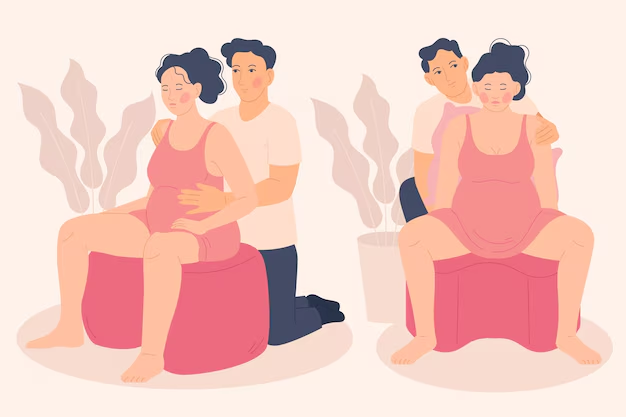
Pregnancy is often viewed as a time of excitement and joy, but it can also bring about a range of emotional changes. The journey of pregnancy can trigger a wide variety of feelings, from happiness and anticipation to anxiety and stress. As your body undergoes significant changes, it’s important not to overlook your mental health. In this blog, we’ll discuss the importance of mental health during pregnancy, common challenges, and ways to take care of your emotional well-being.
The Importance of Mental Health During Pregnancy
Your mental health is just as important as your physical health during pregnancy. Hormonal fluctuations, physical discomfort, and the anticipation of becoming a parent can have a profound impact on your mood and overall emotional well-being. Taking care of your mental health is essential not only for your own well-being but also for the health of your baby. Research shows that mental health issues during pregnancy can increase the risk of preterm birth, low birth weight, and other complications.
Common Mental Health Challenges During Pregnancy
While every pregnancy is unique, some women experience mental health challenges that are more common during this time. Here are some of the most frequently encountered emotional struggles:
1. Anxiety and Stress
It's completely normal to feel anxious about the changes occurring in your body and the upcoming birth of your baby. However, if anxiety or stress becomes overwhelming, it can negatively affect both you and your baby. You may worry about your health, your baby’s health, financial concerns, or the responsibilities of parenthood.
Symptoms of Anxiety:
- Constant worry or fear
- Difficulty sleeping
- Racing thoughts
- Physical symptoms like a racing heart or shortness of breath
How to Manage Anxiety and Stress:
- Relaxation Techniques: Deep breathing, yoga, and meditation can help reduce anxiety.
- Talk to Someone: Sharing your worries with a partner, family member, or friend can provide emotional support.
- Professional Help: If anxiety is severe, consider speaking with a counselor or therapist specializing in prenatal mental health.
2. Depression
Pregnancy can trigger changes in mood, and while some mood swings are normal, ongoing feelings of sadness, hopelessness, and disinterest in activities can indicate depression. Pregnancy-related depression is common, especially in the first and third trimesters, and should not be ignored.
Symptoms of Depression:
- Persistent sadness or feelings of hopelessness
- Loss of interest in usual activities
- Fatigue or lack of energy
- Difficulty concentrating or making decisions
- Thoughts of harming yourself or your baby (seek help immediately if this occurs)
How to Manage Depression:
- Therapy: Cognitive Behavioral Therapy (CBT) is often effective for treating depression.
- Medication: In some cases, your healthcare provider may recommend antidepressant medications that are safe during pregnancy.
- Support System: Surround yourself with a supportive network of friends, family, or support groups.
3. Postpartum Depression (PPD)
Postpartum depression is a form of depression that occurs after childbirth, though the signs may start during pregnancy or immediately after delivery. The changes in hormones, lack of sleep, and the challenges of caring for a newborn can contribute to PPD. It's important to remember that PPD is not a reflection of your abilities as a mother, but a medical condition that requires attention and support.
Symptoms of Postpartum Depression:
- Intense feelings of sadness, hopelessness, or guilt
- Difficulty bonding with your baby
- Extreme fatigue or lack of energy
- Difficulty concentrating
- Thoughts of harming yourself or your baby (seek help immediately if this occurs)
How to Manage Postpartum Depression:
- Professional Help: Therapy, counseling, or support groups can be effective in managing PPD.
- Medication: Antidepressants or other medications may be prescribed by your doctor.
- Self-Care: Resting when possible, eating well, and getting support from family or friends can aid recovery.
4. Mood Swings
Hormonal fluctuations during pregnancy can lead to significant mood swings. One moment, you may feel happy and excited; the next, you may feel irritable or tearful. These emotional highs and lows are very common during pregnancy and usually resolve themselves as your body adjusts.
How to Manage Mood Swings:
- Regular Exercise: Gentle exercise, like walking or swimming, can help stabilize your mood.
- Balanced Diet: Eating regular, nutritious meals can help keep your energy levels steady and reduce mood swings.
- Rest: Pregnancy can be exhausting, and lack of sleep can contribute to irritability and mood swings. Ensure you get plenty of rest.
How to Take Care of Your Mental Health During Pregnancy
Taking care of your mental health during pregnancy is just as important as taking care of your physical health. Here are some practical steps you can take to maintain emotional well-being during this important time:
1. Get Support
Don’t be afraid to reach out to friends, family, or a healthcare provider if you’re struggling emotionally. Having a support system in place can make a huge difference in your mental health during pregnancy. You don’t have to go through it alone.
2. Stay Active
Exercise is not only great for your physical health but also for your mental health. Regular physical activity can help reduce stress and anxiety, improve mood, and boost your energy levels. Activities like walking, swimming, and prenatal yoga are safe and beneficial during pregnancy.
3. Practice Self-Care
Take time for yourself every day, even if it’s just for a few minutes. Practice mindfulness, take a warm bath, listen to music, or engage in activities that bring you joy. Taking care of yourself mentally and emotionally will help you handle the challenges of pregnancy with greater resilience.
4. Get Plenty of Rest
Pregnancy can be physically exhausting, and lack of sleep can negatively affect your mood and mental health. Try to rest when you can, and aim for 7-9 hours of sleep each night. If sleep is difficult, consider using relaxation techniques before bed, such as deep breathing or meditation.
5. Talk to Your Doctor
If you’re struggling with your mental health, talk to your doctor or midwife. They can help assess your mental health and refer you to a therapist or counselor if necessary. Your healthcare provider can also discuss safe treatment options for conditions like anxiety or depression during pregnancy.
Related Articles
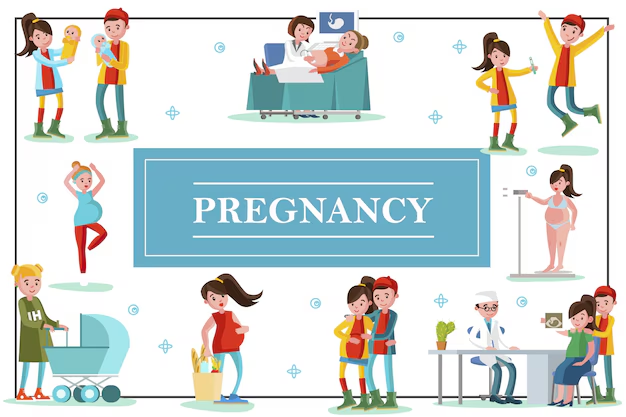
Step-by-Step Approach to Boosting Fertility and Getting Pregnant

Baby development at 14 weeks
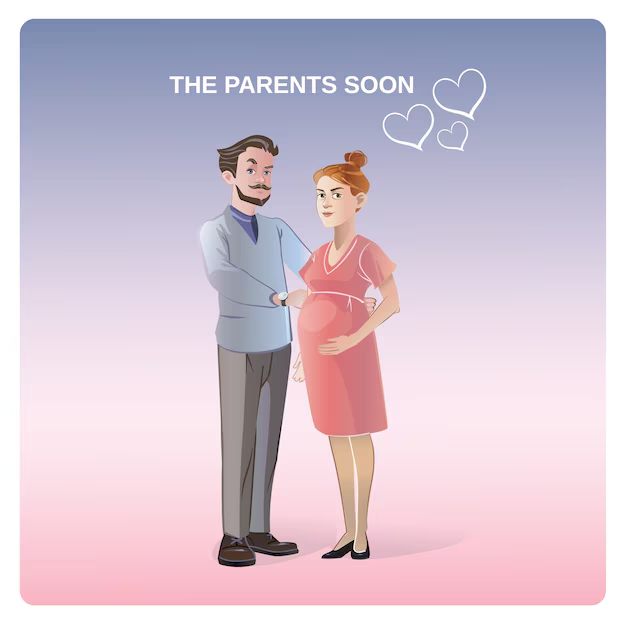
How to Share the News: Announcing Your Pregnancy in the First Trimester
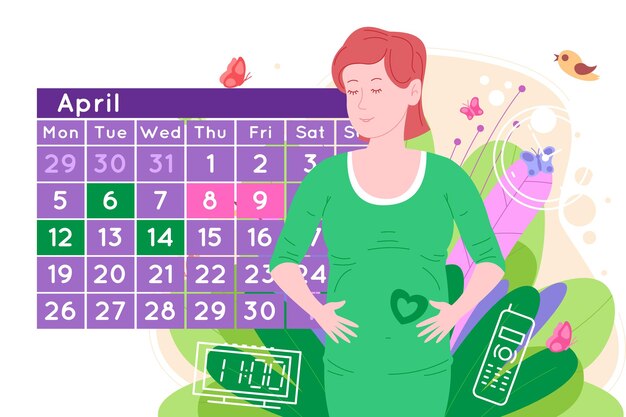
Second Trimester (Weeks 13-26)

Baby development at 26 weeks

Baby development at 36 weeks
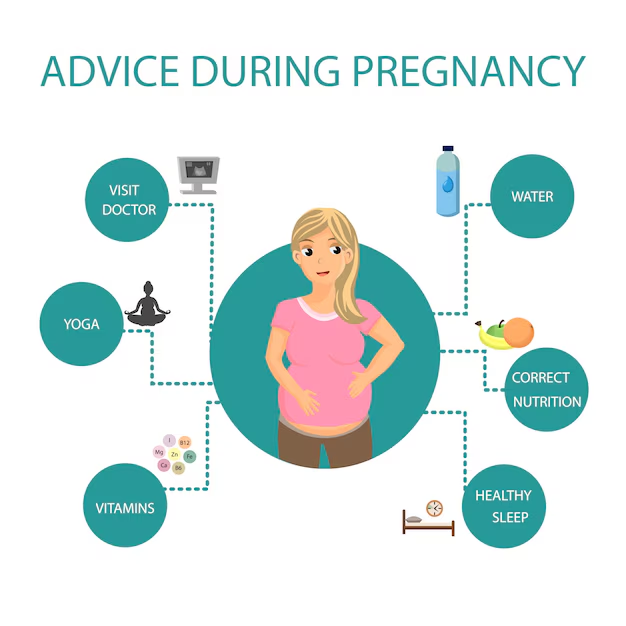
Common Health Complications During Pregnancy: What You Need to Know

Baby development at 8 weeks